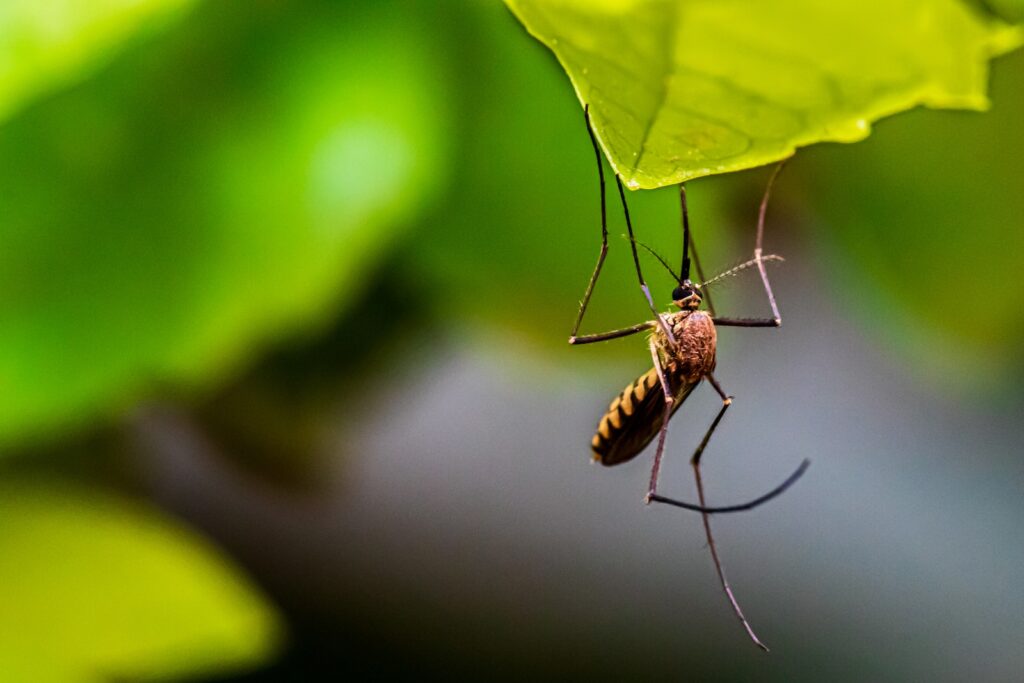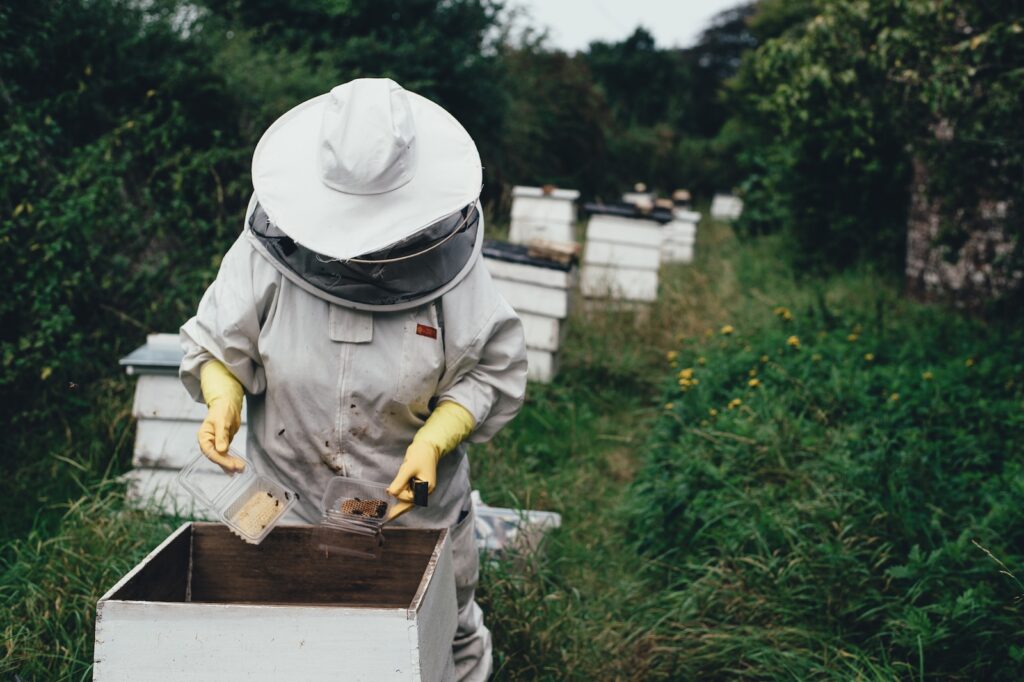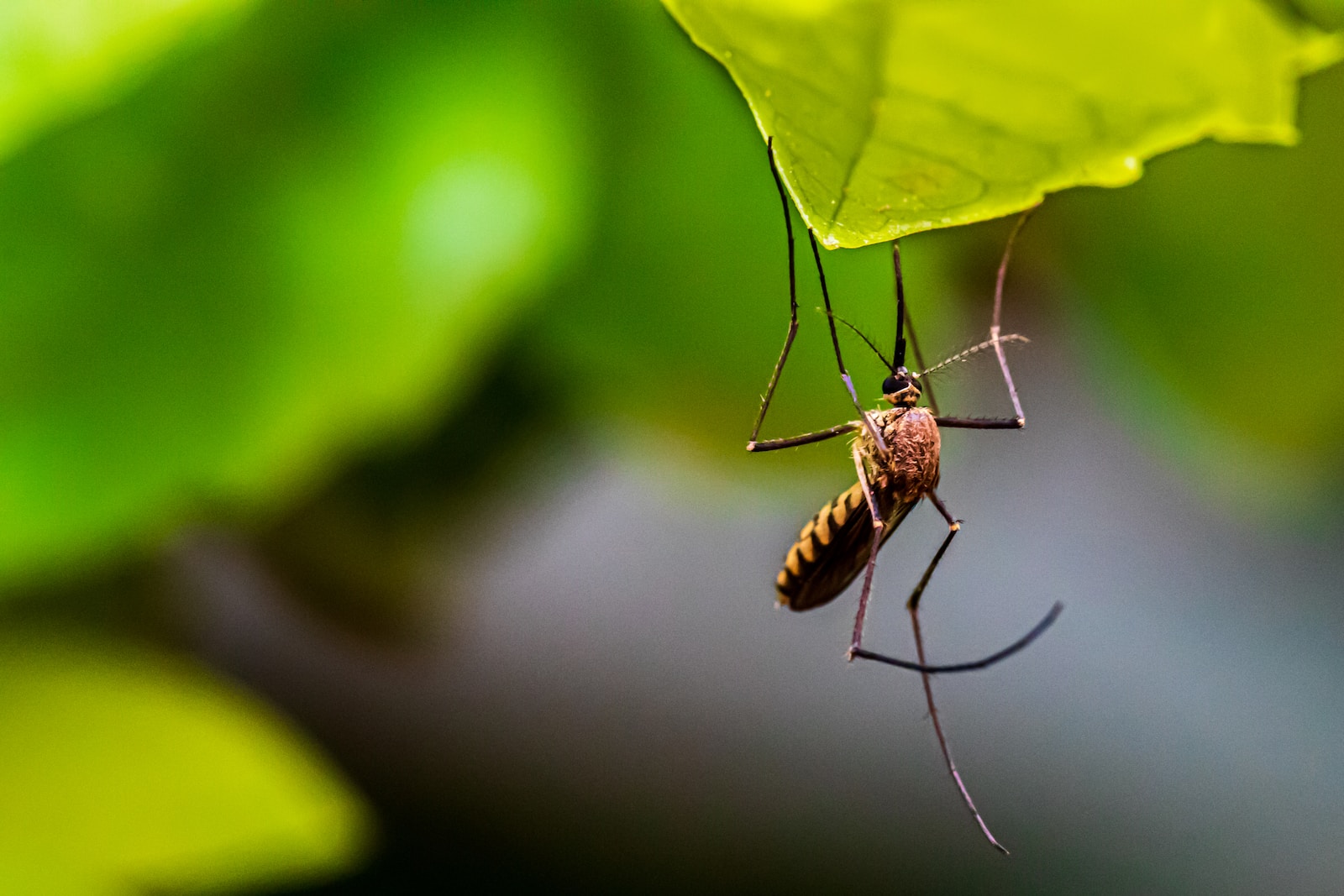Camping is a wonderful way to connect with nature, but it can also bring encounters with unwanted guests – bugs and insects. Whether it’s the incessant buzzing of mosquitoes, the creepy crawlies that invade your tent, or the fear of being bitten, dealing with bugs and insects can be a challenge. However, fear not! In this article, we’ll explore some practical and friendly tips to help you effectively handle these tiny critters while enjoying your camping adventure to the fullest. So, grab your bug spray and get ready to learn how to keep those pesky bugs at bay!

How Do I Deal With Bugs And Insects While Camping
Preventing Bugs and Insects
Choose the Right Campsite
When it comes to preventing bugs and insects during your camping trip, choosing the right campsite is crucial. Look for a location that is not known for having an abundance of bugs, such as areas with standing water or dense vegetation. Ideally, opt for a campsite that is open and has a natural breeze. This will help keep bugs at bay and make your camping experience much more enjoyable.
Set Up Camp Away from Water Sources
While camping near a beautiful lake or river may seem enticing, it is important to set up your campsite away from water sources. Bugs and insects are typically attracted to water, so by staying further away, you can minimize the risk of encountering unwanted visitors. Plus, camping near water sources can also increase the chances of mosquito bites, so it’s best to avoid those areas altogether.
Keep Your Campsite Clean
A clean campsite is a bug-free campsite. Make sure to keep your campsite tidy by picking up any trash or food scraps that may attract insects. Dispose of your waste properly by sealing it in airtight containers or using designated trash bags. Additionally, regularly sweeping or brushing away dirt and debris from your campsite will help deter insects from making themselves at home.
Use Bug Repellents
Bug repellents are your best friend when it comes to keeping bugs and insects away. Apply insect repellent with DEET or other recommended ingredients to exposed areas of your skin, such as arms, legs, and ankles. Be sure to follow the instructions on the repellent and reapply as needed. If you prefer a more natural option, there are also bug repellents available that use essential oils such as citronella or lemongrass.
Wear Protective Clothing
Covering up with protective clothing is another effective way to prevent bug bites. Wear long sleeves, long pants, and closed-toe shoes to create a physical barrier between you and the bugs. Tucking your pants into your socks can also prevent insects from crawling up your legs. Light-colored clothing is recommended as it attracts fewer bugs than dark colors. Additionally, consider wearing a wide-brimmed hat to protect your face and neck from insects.

Cover Food and Trash
Food and trash are major attractions for bugs and insects, so it is essential to cover them properly. Use airtight containers or zip-top bags for your food to keep it safe from pests. When you’re not actively eating, make sure to store your food in a secure place, such as a locked cooler or a bear-resistant container if necessary. Dispose of your trash in sealed bags and keep it away from your campsite to avoid drawing insects near you.
Seal Entry Points
To prevent bugs and insects from entering your tent or campervan, take the time to seal any potential entry points. Check for gaps, holes, or torn screens and repair them before setting up camp. Seal any cracks or openings with duct tape or use fabric patches to cover larger holes. Be thorough in your inspection to ensure that you have a bug-free sleeping area.
Protecting Your Sleeping Area
Use a Bug-Free Tent
Investing in a bug-free tent is one of the most effective ways to protect your sleeping area from bugs and insects. Look for tents that are specifically designed to keep bugs out, with mesh screens and zippered entrances. Make sure the tent has a tight seal to prevent any unwanted guests from sneaking in during the night.
Inspect and Repair Any Holes
Before setting up your tent, inspect it thoroughly for any existing holes or tears. Even the smallest opening can serve as an invitation for bugs to enter. Repair any holes using a repair kit or tape, ensuring that your tent is fully sealed. This will not only keep bugs out but also protect you from other environmental elements.
Secure the Zippers
Zippers are often the weak points in tents when it comes to bug prevention. Ensure that all zippers are fully closed and secure at all times. Consider using safety pins or small locks to prevent the zippers from accidentally opening or being accessed by curious insects.
Use Bed Nets and Sleeping Bag Liners
For added protection, consider using bed nets and sleeping bag liners. Bed nets are lightweight and can be suspended from the ceiling of your tent, providing a physical barrier between you and any insects that may have found their way inside. Sleeping bag liners can also act as an extra layer of protection, preventing bugs from crawling into your sleeping bag while you rest.
Managing Bugs and Insects During the Day
Wear Light-Colored Clothing
When spending time outdoors during the day, opt for light-colored clothing. Dark colors, especially black, tend to attract more bugs and insects. Light-colored clothing not only keeps you cooler but also helps to deter unwanted pests.
Avoid Floral Fragrances
While you may enjoy the sweet scent of floral fragrances, bugs are often drawn to these scents as well. Avoid using heavily scented soaps, lotions, or perfumes when camping. Instead, opt for unscented products to minimize the risk of attracting bugs and insects.
Stay in Open Areas
Bugs and insects thrive in dense vegetation and shaded areas. When possible, try to stay in open areas with fewer trees and shrubs. This will significantly reduce the number of bugs you encounter and give you more space to roam freely.
Keep Moving
Bugs are less likely to bother you if you’re constantly on the move. Whether you’re hiking, fishing, or exploring the surroundings, staying active can help minimize your interactions with insects. Avoid staying in one place for too long, especially in areas with high insect activity.
Create Smoke with Campfire
Smoke from a campfire can act as a natural insect repellent. When camping, consider building a small fire to create smoke around your campsite. The smoke will help deter bugs and insects from approaching, allowing you to enjoy your outdoor experience without constant interruptions.
Use Natural Insect Repellents
If you prefer to avoid chemical insect repellents, there are natural alternatives available that can help repel bugs and insects. Essential oils such as citronella, lemongrass, and eucalyptus are known for their bug-repelling properties. Apply these oils to your skin or use them in diffusers or candles to create a bug-free zone around your campsite.
Avoid Leaving Wet Clothes or Towels Outside
Wet clothes or towels left outside can attract bugs and insects, particularly those seeking moisture. When camping near water sources or experiencing rain, make sure to hang your wet items inside your tent or camper to dry. This will prevent bugs from being drawn to the dampness and potentially causing a nuisance.
Check Yourself Regularly
It is important to check yourself regularly for any insect bites or ticks. After spending time outdoors, thoroughly inspect your body, paying close attention to commonly bitten areas such as ankles, wrists, and the back of your neck. This will allow you to catch any potential issues early on and take the necessary steps to address them promptly.
Dealing with Mosquitoes
Eliminate Standing Water
Mosquitoes breed in standing water, so eliminating any potential breeding grounds near your campsite is essential. Drain or empty any containers that collect water, such as buckets, flower pots, or unused water bottles. By doing so, you decrease the likelihood of attracting mosquitoes to your camping area.
Use Mosquito Nets and Screens
Consider using mosquito nets and screens to create a protective barrier around your sleeping and eating areas. Mosquito nets can be hung over your bed or attached to your tent to keep mosquitoes at bay during the night. Screens can be used to cover windows and doors, preventing mosquitoes from entering your living space.
Use Citronella Candles or Lanterns
Citronella candles or lanterns emit a scent that repels mosquitoes. Use these natural repellents around your campsite to create a mosquito-free zone. Place them strategically near eating areas, seating areas, and near your sleeping area to provide maximum protection throughout your camping experience.
Apply Mosquito Repellents
Applying mosquito repellents with DEET or other recommended ingredients is crucial when dealing with mosquitoes. Follow the instructions on the repellent and apply it to exposed areas of your skin. Additionally, consider using repellents specifically designed for clothing to provide added protection.
Consider Natural Repellents
If you prefer a more natural approach, certain plants and herbs are known to repel mosquitoes. Planting citronella, lavender, lemon balm, or basil near your campsite may help deter mosquitoes from coming too close. You can also rub the leaves on your skin for added protection.
Avoid Peak Mosquito Activity Times
Mosquitoes are most active during dawn and dusk. Avoid spending significant amounts of time outdoors during these times, especially in areas known for high mosquito activity. Plan your activities accordingly, and try to remain indoors or in well-screened areas during peak mosquito hours.
Cover Exposed Skin
To prevent mosquito bites, cover as much of your exposed skin as possible. Wear long sleeves, long pants, and closed-toe shoes to create a physical barrier between you and the mosquitoes. Additionally, consider wearing socks and hats to protect your ankles and head.
Use Fan in Sleeping Area
Mosquitoes are weak fliers and can easily be deterred by a gentle breeze. Bring a small battery-operated fan or portable fan to place near your sleeping area. The airflow created by the fan will make it difficult for mosquitoes to land on you while you sleep.
Handling Flies and Gnats
Keep Food and Trash Covered
Flies and gnats are attracted to food and trash, so it is crucial to keep them covered at all times. Use mesh food covers or domes to protect your meals from these pests. Keep trash in sealed bags or containers, and dispose of it properly to avoid attracting flies and gnats to your campsite.
Avoid Wearing Bright Colors
Bright colors, especially floral prints, can attract flies and gnats. Opt for neutral or light-colored clothing to minimize their attraction. By blending in with your surroundings, you decrease the chances of becoming a target for these insects.

Use Fly Traps or Sticky Strips
Fly traps or sticky strips can be a useful tool for capturing flies and gnats in your campsite. Hang or place them strategically near areas where flies and gnats are most active, such as eating areas or near trash bins. These traps will help to reduce their population and keep your campsite bug-free.
Use Natural Gnat Repellents
Certain plants and herbs have natural repellent properties against gnats. Consider planting or bringing along pots of lavender, rosemary, or mint to help repel these pesky insects. Crushing the leaves and rubbing them on your skin can also provide some protection against gnat bites.
Keep Eating and Cooking Areas Clean
Cleanliness is crucial when it comes to managing flies and gnats. Keep eating and cooking areas clean by wiping down surfaces, clearing away food scraps, and covering any food that is not being actively consumed. By minimizing food odors and maintaining a tidy campsite, you can reduce the presence of flies and gnats.
Use Fans to Deter Flies and Gnats
Flies and gnats are weak fliers and can be deterred by the airflow created by fans. Consider bringing a portable fan to your campsite and place it strategically near eating or cooking areas. The gentle breeze will make it difficult for flies and gnats to hover around these areas, allowing you to enjoy your meals in peace.
Controlling Ants and Other Crawling Insects
Seal Food Properly
Ants and other crawling insects are food-driven pests, so proper food storage is essential. Seal all food in airtight containers or plastic bags to prevent them from being accessed by ants. Avoid leaving food out for extended periods and clean up any spills or crumbs promptly to deter crawling insects.
Keep Surfaces Clean
Maintaining clean surfaces is crucial in controlling crawling insects. Wipe down tables, countertops, and cooking areas regularly to remove food particles and odors that may attract ants. By keeping surfaces clean, you minimize the chances of inviting crawling insects into your campsite.
Use Natural Ant Repellents
Certain spices, herbs, and essential oils are known to repel ants. Sprinkle cinnamon, cayenne pepper, or cloves around your campsite to create a barrier that ants will avoid crossing. You can also soak cotton balls in peppermint oil or vinegar and place them strategically to repel ants from specific areas.
Set Up Traps or Barriers
For additional ant control, set up traps or barriers around your campsite. Ant baits or adhesive barriers can be placed near ant trails or entry points to capture and deter ants from reaching your living and eating areas. Follow the instructions on the traps and dispose of them properly.
Create a Moat
For camping trips that involve campervans or tents with legs, creating a moat can be an effective way to keep crawling insects away. Fill shallow containers with water and place the legs of your campervan or tent in them. The water acts as a barrier, preventing ants and other crawling insects from reaching your sleeping or living areas.
Avoid Leaving Food Crumbs and Waste
Leaving food crumbs or waste around your campsite is an open invitation for crawling insects. After meals, make sure to thoroughly clean up any food scraps and dispose of them properly. Rinse dishes and utensils well to remove any traces of food that may attract ants.
Clear Out Vegetation near the Campsite
Trimming or clearing out vegetation near your campsite can help prevent crawling insects from making their way inside. Crawling insects often use vegetation as pathways to search for food and shelter. By removing these pathways, you reduce the chances of encountering crawling insects in your camping area.
Coping with Ticks
Wear Protective Clothing
Ticks often latch onto exposed skin, so wearing protective clothing is crucial. Opt for long sleeves, long pants, and closed-toe shoes to create a physical barrier between you and ticks. Tuck your pants into your socks to prevent ticks from climbing up your legs.
Tuck Pants into Socks
Tucking your pants into your socks creates an additional barrier and helps to prevent ticks from accessing your skin. This simple and effective technique can significantly reduce the chances of being bitten by ticks.
Check for Ticks Regularly
Performing regular tick checks on yourself and your camping companions is essential. Check your body from head to toe, paying close attention to areas such as the scalp, armpits, groin, and behind the knees. Promptly remove any ticks you find using tweezers or a tick removal tool.
Use Tick Repellents
Tick repellents can be effective in preventing tick bites. Apply repellents with DEET or other recommended ingredients to exposed areas of your skin, and follow the instructions on the product. Consider using repellents specifically designed for clothing to provide additional protection.
Consider Treating Clothing with Permethrin
Treating your clothing with permethrin can provide long-lasting protection against ticks. Permethrin is a potent insect repellent that kills ticks upon contact. Spray or soak your clothing and allow it to dry thoroughly before wearing. Remember to follow the instructions carefully and reapply the treatment as needed.
Remove Ticks Properly and Promptly
If you find a tick attached to your skin, it is crucial to remove it properly and promptly. Use tweezers or a tick removal tool to grasp the tick as close to the skin as possible and gently pull upward with steady pressure. Avoid twisting or jerking to prevent the tick’s mouthpart from breaking off and remaining in your skin. Cleanse the bite area with soap and water or rubbing alcohol after removal.
Dealing with Bees, Wasps, and Hornets
Avoid Wearing Bright Colors and Floral Prints
Bees, wasps, and hornets are often attracted to bright colors and floral prints. When camping, it is best to avoid wearing clothing with bright colors or floral patterns to decrease the chances of attracting these stinging insects.
Cover Food and Drinks
When eating outdoors, it is crucial to cover your food and drinks to prevent bees, wasps, and hornets from being attracted to them. Use mesh food covers or lids to keep your meals protected. Keep sugary drinks covered with lids or use straws to minimize the smell and likelihood of attracting stinging insects.
Don’t Wear Strong Fragrances
Bees, wasps, and hornets are attracted to strong fragrances, including perfumes, lotions, and even scented soaps. To minimize the risk of attracting these stinging insects, avoid using heavily scented personal care products while camping.
Avoid Swatting or Rapid Movements
If a bee, wasp, or hornet is making its way towards you, it is important to remain calm and avoid swatting or making rapid movements. Sudden movements can agitate these insects, increasing the chances of getting stung. Stay still and allow them to fly away on their own.
Do Not Disturb Nests
When camping, be mindful of your surroundings and avoid disturbing bee, wasp, or hornet nests. If you come across a nest, keep your distance and choose an alternate route. Disturbing a nest can provoke the insects and lead to aggressive behavior, putting you at greater risk of getting stung.
Be Cautious Around Trash and Sweet Smells
Bees, wasps, and hornets are attracted to sweet smells, including those from trash bins or picnic areas. Be cautious when handling trash bags and ensure they are sealed properly. Avoid leaving food scraps or sweet-smelling items exposed to minimize the chances of attracting stinging insects.
Use Natural Repellents
Certain plants and herbs, such as lemongrass, mint, and eucalyptus, are known to repel bees, wasps, and hornets. Consider applying natural repellents containing these ingredients to your skin or setting up potted plants near your campsite to deter these stinging insects.
Seek Medical Help for Allergic Reactions
If you or someone in your camping group experiences an allergic reaction to a bee, wasp, or hornet sting, it is crucial to seek immediate medical help. An allergic reaction can be life-threatening, and timely medical intervention is essential in such cases.
Handling Spiders
Shake Out Shoes and Clothing
Before putting on any shoes or clothing items, give them a good shake to ensure there are no spiders hiding inside. Spiders often seek shelter in dark and damp areas, making shoes and clothing a potential hiding spot. By shaking them out, you can minimize the risk of encountering a surprise spider.
Clear Brush and Wood Piles
Spiders tend to make homes in brush and wood piles, so it is important to clear these areas near your campsite. If possible, choose a campsite that is clear of debris and vegetation that may attract spiders. By creating a spider-free zone, you can have a more pleasant camping experience.
Avoid Camping near Spider Habitats
When selecting a campsite, be mindful of potential spider habitats. Spiders often favor areas with large amounts of vegetation, tall grass, or rocky crevices. It is best to choose a camping location that is away from these habitats and has a lower likelihood of encountering spiders.
Use Spider Repellents
Certain essential oils, including peppermint and tea tree oil, are known to repel spiders. Mix these oils with water in a spray bottle and apply to areas where spiders may be present, such as cracks, crevices, or the perimeter of your campsite. Reapply the repellent as needed to maintain its effectiveness.

Keep the Campsite Clean
Maintaining a clean campsite is essential in preventing spiders. Remove any debris, woodpiles, or leaf litter that may serve as potential hiding spots for spiders. Regularly sweep or brush away cobwebs to deter them from settling near your living and sleeping areas.
Wear Protective Clothing
Wearing protective clothing can significantly reduce the chances of encountering spiders. Opt for long sleeves, long pants, and closed-toe shoes to create a physical barrier between you and any potential spiders. Make sure to tuck your pants into your socks to prevent spiders from crawling up your legs.
Learn to Identify Venomous Spiders
While most spiders are harmless, it is still important to learn how to identify venomous spiders in your camping area. Familiarize yourself with the appearance of venomous spiders, such as black widows or brown recluses, and know their typical habitats. If you encounter a venomous spider, exercise caution and avoid direct contact.
Preventing Bites and Stings
Avoid Bright Colors and Floral Prints
In addition to bees, wasps, hornets, and flies, other insects may be attracted to bright colors and floral prints. When camping, it is best to avoid wearing clothing with vibrant colors or floral patterns to minimize the risk of bites and stings.
Cover Up
Covering up with long sleeves, long pants, and closed-toe shoes is an effective way to prevent bites and stings from various insects. By creating a physical barrier between you and these pests, you reduce the chances of them reaching your skin.
Use Insect Repellents
Using insect repellents is crucial in preventing bites and stings. Apply insect repellents with DEET or other recommended ingredients to exposed areas of your skin. Consider using repellents specifically designed for clothing to provide additional protection.
Check for Nests or Hives
Before setting up camp, check the surrounding area for nests or hives. Bees, wasps, and hornets may have established nests nearby, increasing the likelihood of stings. If you identify any nests, choose an alternate campsite to avoid potential risks.
Be Cautious Around Fallen Logs and Ground Holes
Insects, including ants and bees, may establish nests in fallen logs or ground holes. Exercise caution when exploring or navigating around these areas and be mindful of any signs of insect activity. Keep a safe distance to prevent accidental bites or stings.
Do Not Disturb Insect Nests
When spending time outdoors, it is important to respect and avoid disturbing insect nests or hives. Bees, wasps, hornets, and ants may become aggressive when their nests are disturbed, putting you at risk of bites or stings. Keep a reasonable distance and choose an alternative route if necessary.
Be Mindful of Fragrances and Food Smells
Many insects are attracted to particular fragrances and food smells. Avoid using strongly scented personal care products while camping, as this may attract unwanted attention from insects. Additionally, properly store and dispose of food to minimize the chances of attracting insects to your campsite.
By implementing the preventive measures and strategies outlined in this article, you can significantly reduce the presence of bugs and insects during your camping trip. Remember to always be vigilant, stay informed about the insects in your camping area, and take the necessary precautions to ensure a bug-free and enjoyable outdoor experience. Happy camping!

Leave a Reply